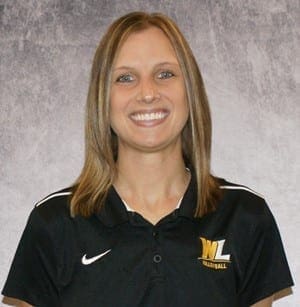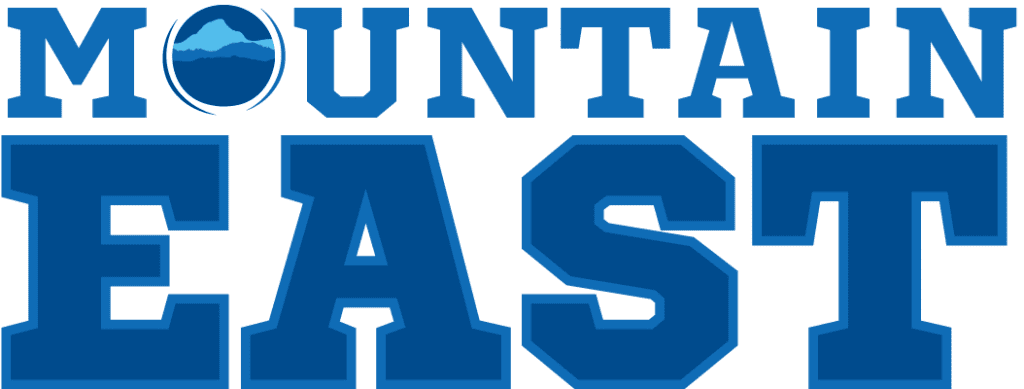The dominos keep falling, and ominous signs abound as they relate to ANY collegiate athletics, save for Power 5 conference football, being played this fall.
Recently the NCAA Division II and III Presidents’ Councils both canceled Fall 2020 championships. That means no regional or national tournaments in any fall sports.
That also means there’s a lot less incentive for conferences to hold fast. The ones who’ve yet to fold on fall sports may see cause now.
The Pennsylvania State Athletic Conference was one of the first to balk and opt for play in Spring 2021. Later, Division III conferences like the PAC and OAC joined the club.
Both the Mountain East Conference, home to West Liberty and Wheeling, along with the G-MAC (based primarily in Ohio) have delayed, yet stayed their hands when it comes to fully postponing the season.
But, like all things COVID-related, the situation remains fluid.
Holding Steady for Now
The South Atlantic Conference closed up shop for the fall on Friday. A similar announcement came from Football Championship Subdivision (FCS), announcing it “shelved” the playoffs for this fall.
The MEC released a statement earlier this week, stating that it’s continuing to monitor and work on the situation, but nothing has changed as of now.
“We understand the stress and anxiety that the circumstances around the pandemic have caused, including the uncertainty to the academic and athletic pursuits for everyone in the Mountain East Conference,” the release said. “We will continue to work in collaboration with our institutional leaders to provide direction and clarity as soon as we can during these ever-changing circumstances.”
No news is normally good news. But recently, bad news seems to be inevitable.
“The MEC is doing its due diligence, and they are looking at any and all options to provide our student athletes with some sort of practice or play,” West Liberty University athletics director Lynn Ullom said. “They are turning over every stone to see what is possible while dealing with a ton of mandates from the state, federal, conference, and national offices.
“That’s not easy to do because the key word is it’s a ‘fluid’ situation. It seems like things are changing daily.”
Conferences that still participate have the option of having a conference championship and tournament if they so choose. But that’s where the road ends. There are no regional rankings or tournaments to shoot for beyond the conference.
Of Safeguards and Financials
The NCAA made a few recent rulings that will benefit student athletes. But those rulings also place much risk and pressure on their respective academic institutions.
One major decision came at the behest of U.S. Senators Cory Booker (D-N.J.) and Richard Blumenthal (D-CT).
The NCAA revoked the ability of member institutions to have their athletes sign COVID-19 waivers. A signed waiver prevents a school from liability questions in the event an athlete contracts COVID.
Many schools at the D-II level and below got out of offering insurance to students years ago, requiring those in attendance to carry private insurance. With the question of liability now wide open, will colleges want to risk athletes being exposed and being opened up to a potentially expensive liability?
Another ruling that came down is for student athletes who do get to compete; if their team participates in fewer than 50 percent of the scheduled contests, they will not lose a season of eligibility.
In addition, players opting not to participate because of risks to their health will not be penalized in eligibility nor in loss of scholarship.
The big looming question for schools forging ahead with playing is involves testing, and money—who is going to pay for it.
“That’s the big thing, the mandated testing,” Ullom said. “And also, what testing they will accept; as for now, they are only accepting the most expensive tests.
For high contact sports, there is a game every week, so you are literally testing all the time. That will run in the hundreds of thousands of dollars. That is a challenge.”

Equally Pressing Need
Ullom and his fellow athletics department officials are playing the waiting game. Both the MEC, and state and health departments have decisions to make.
But Ullom has another pressing concern that needs addressed.
If the Hilltoppers’ volleyball team does play this fall, presently, it doesn’t have a coach. That’s a problem.
Kayla Mull resigned after eight seasons at the helm, finishing as WLU’s winningest volleyball coach with a 136-125 career mark. Her efforts were highlighted by a three-year stretch of 20-win seasons. A runner-up MEC against conference juggernaut Wheeling University are other highlights. Mull’s team even managed its first regional ranking in school history.
But Mull is trying to start a family with her husband. In a press release issued by the university, Mull admitted “I didn’t think it would be fair to ask my players to be 100 percent focused on volleyball if I couldn’t be 100 percent focused on them.”
Ullom had nothing but praise for the former coach. He knows she’s left the program in a great position for continued success.
“She inherited a program that was not faring well and had three of our coaches in a five-year period, and she gave us stability, and the teams kept getting better,” Ullom said of Mull. “She assembled a quality program both on the court and in the classroom.”
The Hilltoppers’ players all had a 3.7 GPA or higher last school year.
The opening is an attractive position. The program is in great shape again. But Ullom knows the clock is ticking on making that right hire.
“Obviously, this is an awful time to hire a volleyball coach, but with sports postponed until October at this point, we have a little more time to get this right,” Ullom said.


